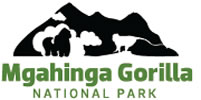Communities around Bwindi Forest and Mgahinga National parks, the home to more than half of the world’s endangered mountain gorillas have a reason to smile, with the introduction of Gorilla levy fund . The new development is yet another avenue to benefit the communities neighboring Bwindi Mgahinga Conservation Area.
The fund promotes sustainable environmental conservation, improved livelihood, wildlife-human conflict resolution and community empowerment. In this arrangement, the Uganda Wildlife Authority (UWA) levies $5 on every gorilla permit sold and the proceeds go towards financing community led projects.
Much as the gorilla conservation has immense benefits to it, communities in the immediate park neighborhood are faced with hard choices. Residents in these front line villages have often complained about gorillas that stray off from their forest habitat to raid gardens, causing destruction of crops making conservation efforts a nightmare. The communities bear the brunt of the gorillas when the gentle beasts get out of the park, since the destruction to their gardens directly affects their welfare.
Bearing in mind that gorilla tourism contributes the highest percentage of revenue earned from the tourism activities in Uganda given the restrictions on the number of visitors for a gorilla group per day, the BMCA communities do not receive as many visitors as other parks. This generally reduces the total revenue earnings overall from revenue shared earnings in terms of Protected Areas park entry fees.
It is to this end that the fund was established to supplement on the money UWA gives to the community as revenue sharing funds to foster development. The fund seeks to benefit mostly the front line parishes in BMCA and fund projects that emphasize conservation, household livelihood improvement and projects that serve the common good.
Many communities around the park are still grappling with poverty and disease with most of the social amenities inadequate. For a particular community to qualify for the fund, the said project must have been identified in the local government finance and planning cycle and reflected in the development plans.
In the gorilla levy arrangement however, unlike the revenue fund, special interest has been channeled to the under privileged group. 15% of the money UWA disburses at the parish level will go to address the marginalized groups while another 15% will address the issue of the problem animals.
The supplement comes in handy for community relations that often hit low when the gorillas raid the neighborhoods and wreck havoc.

